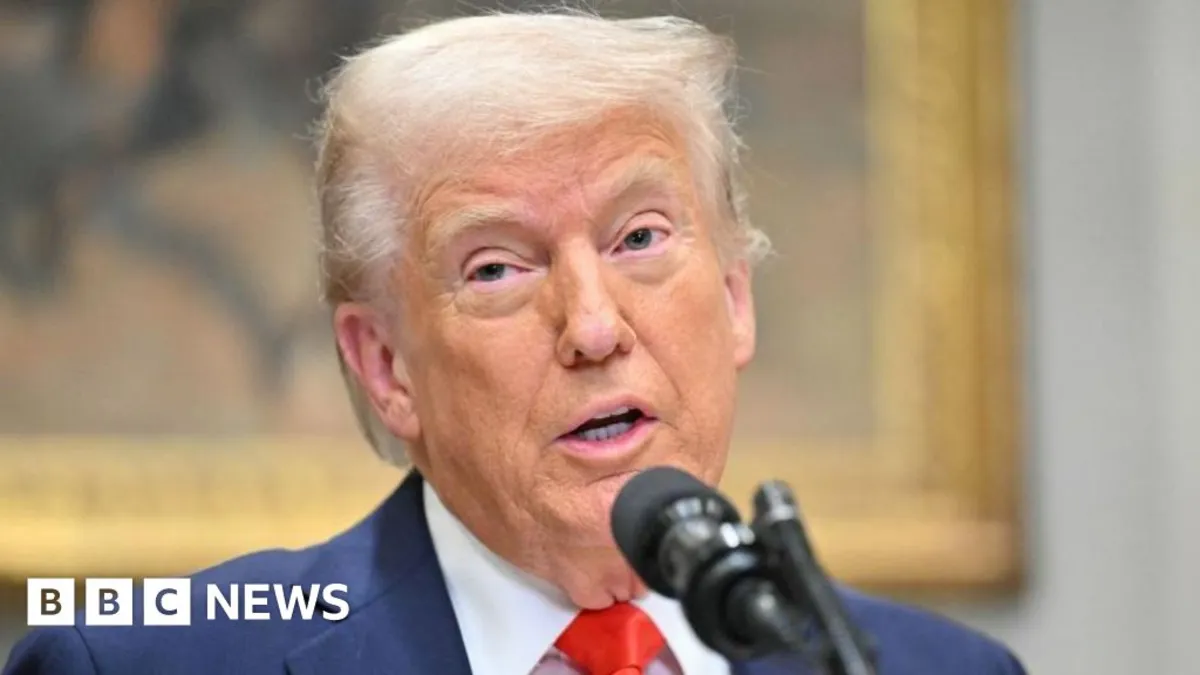
In a significant development regarding trade relations between the United States and its neighbors, US President Donald Trump announced that Mexico will not be required to pay tariffs on goods covered under the United States-Mexico-Canada Agreement (USMCA) until April 2. While Trump has yet to confirm whether this suspension will also apply to Canada, sources within the Canadian government anticipate a similar exemption, as reported by the BBC.
This latest announcement marks the second reversal in Trump’s tariff policy within just two days. Following a statement made on Wednesday, where he mentioned a temporary reprieve for car manufacturers from a 25% import tax—only a day after it was implemented—Trump's administration continues to shift its approach to tariffs. Commerce Secretary Howard Lutnick indicated on CNBC that the temporary exemption for car parts imported from Canada and Mexico might be extended to include all products under the USMCA.
Established during Trump's first term, the USMCA consists of 34 chapters addressing various sectors such as automotive, dairy, lumber, and financial services, with provisions for a review every six years. On Thursday, Trump utilized his Truth Social platform to announce Mexico's tariff exemption, stating, "After speaking with President Claudia Sheinbaum of Mexico, I have agreed that Mexico will not be required to pay tariffs on anything that falls under the USMCA Agreement."
President Sheinbaum characterized her conversation with Trump as excellent and respectful, emphasizing that both nations are committed to collaborating on critical issues such as stopping the flow of the opioid fentanyl from Mexico into the US and curbing the trafficking of firearms across the border.
Despite Trump's criticism of Canadian Prime Minister Justin Trudeau on social media, an exemption for Canada is expected to be announced soon. Meanwhile, Ontario Premier Doug Ford confirmed to CNN that Ontario plans to proceed with a 25% tariff on electricity provided to approximately 1.5 million homes and businesses in New York, Michigan, and Minnesota starting Monday.
The USMCA, which came into effect in 2020 after extensive negotiations, is a modern update to the North American Free Trade Agreement (NAFTA) established in 1994. The economic ties between the US, Canada, and Mexico are deeply integrated, with billions of dollars’ worth of goods crossing borders daily. However, the introduction of tariffs has sparked a potential trade war not only with the neighboring countries but also with China.
Trump has argued that imposing tariffs will protect American industry and enhance manufacturing capabilities. However, economists caution that such tariffs could lead to increased prices for consumers in the US. It's important to note that tariffs are paid by businesses importing products or parts, and many US companies have expressed concerns regarding tariffs imposed by their closest trade partners due to the interconnected nature of supply chains.
In response to Trump's initial 25% tariffs, both Canada and Mexico announced retaliatory import levies. Earlier reports from the Commerce Department indicated that US imports surged in January amid fears surrounding tariffs. The report revealed that America's trade deficit soared by 34% to over $130 billion (£100 billion), with imports for the month increasing by 10%.